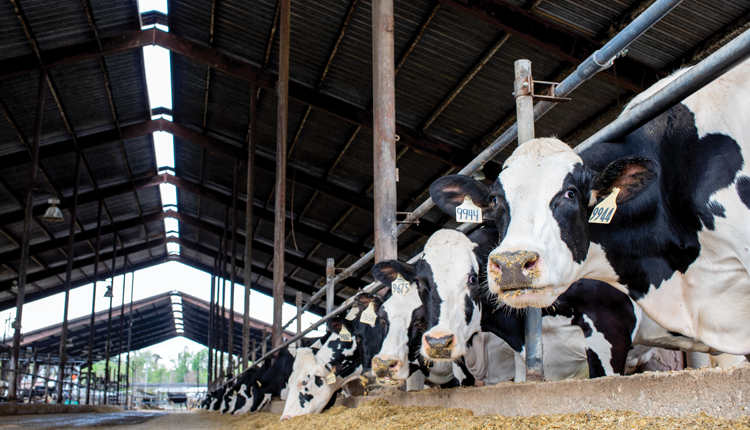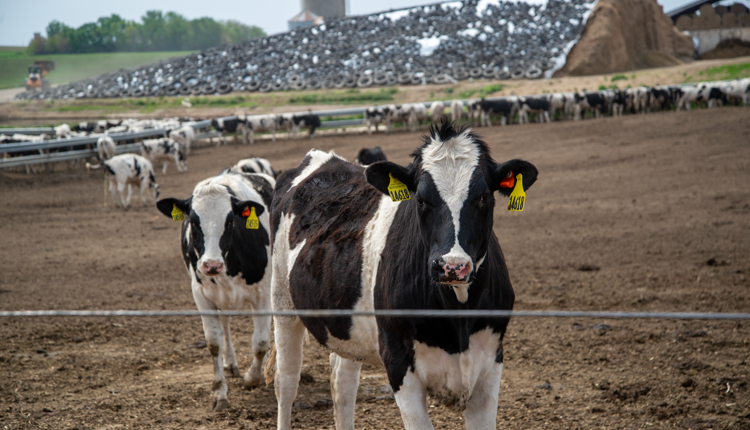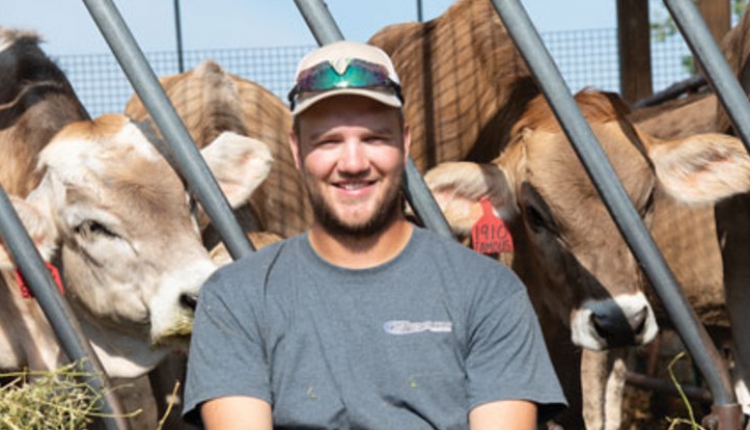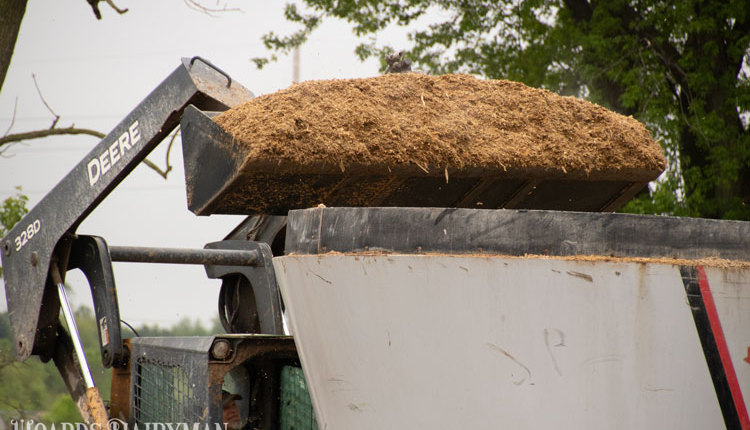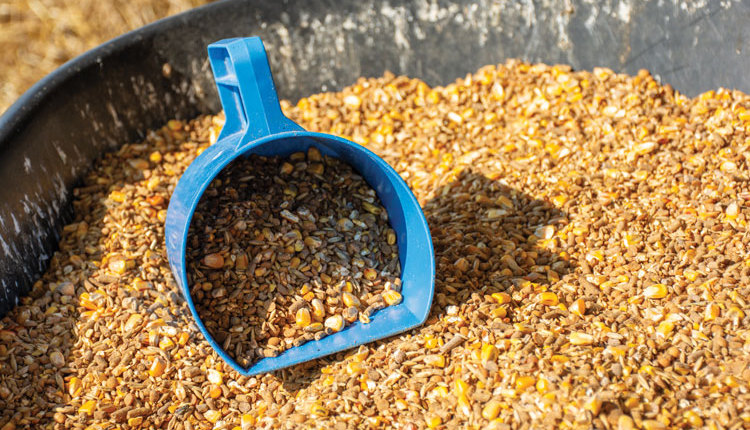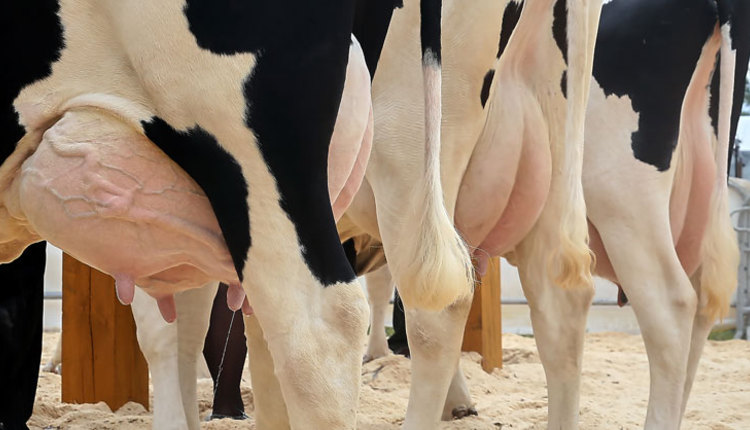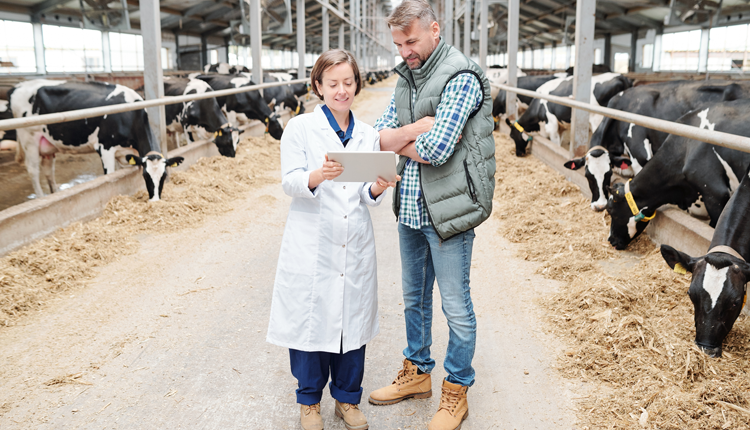A few weeks ago, one of our parish's Lenten living bulletin inserts raised concerns with an important part of our parish family, mainly those involved in agriculture. After hearing from a number of our parish farmers and families, I felt it was important to present more information on the use of these inserts in our faith lives.
The inserts are based on Pope Francis' encyclical entitled Laudato Si (Care for our Common Home) and were provided to apply some practical usage and insight into a few of the key points that Pope Francis has made in his teaching - and in this case, in regards to agriculture - and to connect them with our works of prayer, fasting and almsgiving.
When dealing with our usage of food in the first week of Lent, there were a few comments that were made in generalities, comments that may have used poor wording to discuss agriculture and its effects on the land as applying to all involved in farming, not just a few who have made poor choices. The article that we received from a larger information source states at one point that “chemical fertilizers and pesticides from large industrial farms contaminate our soil . . . animal waste from factory-farmed meat spoils our streams and rivers.” Such generalities are not representative of all, or even a majority, of area farms.
In the action steps, the insert then suggests a number of practical things that could be done: For example, not eating meat for a week, or to “choose animal products that have not been treated cruelly or grown in Concentrated Animal Feeding Operations,” or to watch a video on factory farming of animals (a video that, much like other things in social media, seeks to overexaggerate and generically apply poor practices to the all).
These examples may not have been noticed by everyone, but to those who depend upon agriculture for their livelihood and have taken great care to provide better care for animals, for the environment and for their families, these remarks were seen as disparaging and as a direct attack.
I want it to be known that our Holy Family Parish did not intend these attacks, and that never did we see these things in the same light as those who took offense at them. After hearing from parishioners, I considered ceasing all of the remaining Lent inserts to avoid any more concerns, but also had to consider that, while there were some poor examples and choices in words used, much of the information could be important for us to consider. Just as the inserts have used a few examples to paint a very attacking picture, it would be equally wrong of me to throw out the good that is given in these articles for the sake of some poorly worded remarks.
Looking through the remaining articles, there are a few points that may also cause concerns — for example, this week it states that it takes as much as 1,500 gallons of water to produce one pound of beef, whereas other studies show it may be as little as 440 gallons; there is also a reference to renewable energy in an upcoming article that may be concerning to some. May these be opportunities for discussion, enrichment, and further education for each of us, much as this entire situation has been for me as a parish priest.
The Bible and foodThe Catholic Church and many Christian faith communities have always held agriculture as important to our very livelihood — it was a key part of the original work of creation that God entrusted the care of the earth and all the animals, birds, and fish of the sea to humanity to care for it, to nurture it, to treat it as a gift. Jesus himself frequently used the agricultural environment around him to offer references to the kingdom, how we care for one another, and how God cares for us. The Parable of the Lost Sheep is one of my favorites in this regard. We have a patron saint of farmers in St. Isidore, and we have the wonderful example of St. Francis in care for the earth and all of creation.
With that in mind, and considering the Lenten insert, there is another side of the story that has gone untold — the attention and work that farmers today put into caring for creation. I have witnessed firsthand on some of our area dairy farms the investment that is made to provide a safe, comfortable environment for calves, heifers and cows; the health and treatment that is offered to newborn and young cattle; and providing valuable resources that will cut down on waste and land over usage. One specific example of this that I have witnessed is the treatment of solid waste so that it can be reused time and again as safe and clean bedding and ground cover for the barn, thereby significantly reducing the amount of waste produced by the farm.
Great steps have been made to reduce the carbon footprint of our farms and to make farms more efficient. One example is that, for the average cow today versus a half-century ago, the carbon footprint has been reduced more than 37 percent; that a unit of milk today versus the same time frame uses only 21 percent of the animals, 23 percent as much feed, 35 percent as much water, 10 percent of the land, and creates only 24 percent as much animal waste.
We should always growThe challenge that stands before us is that we never rest on the good things that are being done — just as we do in our spiritual lives, as we do as a parish family, and as we do in our careers — we always must seek to take what is good and make it better.
Our Holy Father Pope Francis commends the good works that have been done in all areas of recycling, reducing emissions, and working to care for others, but also encourages us — more so, challenges us — to seek to do more. God’s creation, we must remember, is a gift — and as a gift, we have to consider the gift we are leaving for our children and our children’s children. In a word, it’s about stewardship.
While I’ve seen the great works that some of our local dairy farms and others in agriculture have sought to implement, I encourage all of us to continue considering how we are using God’s creation and ensuring that we are not using so as to use up.
I’ve also witnessed firsthand another aspect — the sadness and sense of loss that goes into a family dairy farm, where for generation after generation the same buildings, homes, and lands have been handed down, but the growing demands and costs associated with farming have made it economically impossible to continue. There is a great sense of personal loss and sadness experienced by the generation that is unable to pass the tradition on to the next generation. And we must always keep that suffering in our prayer and seek to extend the hand of God’s mercy in whatever way possible.
In closing, I personally want to apologize to all those who saw the remarks in our local bulletin insert as attacking and harming, and want them to know that it was never intended to be as such. I also wish to thank those who brought their concerns to my attention, and I encourage continued healthy, engaging, and enriching dialogue and education both here and in other faith communities.
Let us continue to pray for our farmers and all those in agriculture and work together to bring about good change in our environment — and may we never forget to pray for and encourage our youth and programs such as 4-H and FFA that are geared toward agricultural growth, education and understanding.
Editor’s note: While portions of this specific article were originally intended for the faith community served by Father Brandt, the editors participated in an ongoing dialogue that lead to this article. The editors believe that Hoard’s Dairyman readers would learn from creating a positive story after some anti-agricultural animal comments crept into normally insightful communication.
